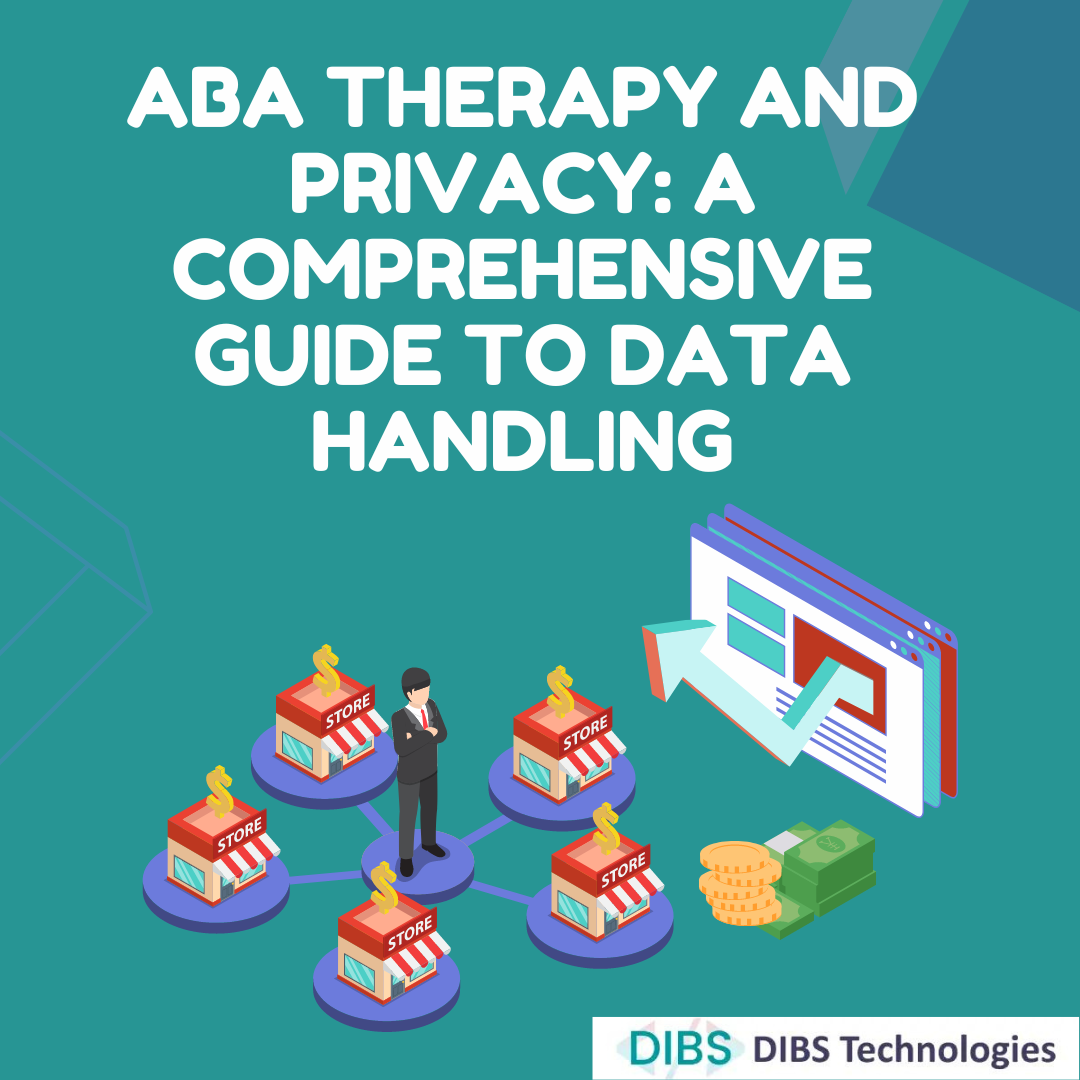Applied Behavior Analysis (ABA) therapy has emerged as a highly effective intervention for individuals with autism spectrum disorder (ASD). However, the increasing reliance on data collection in ABA therapy raises important privacy concerns. Balancing the need for data-driven decision-making with ethical considerations surrounding privacy is crucial to ensuring the well-being and rights of individuals undergoing ABA therapy. In this blog, we will delve into the various aspects of data collection in ABA therapy and explore strategies to assuage privacy concerns.
The Importance of Data in ABA Therapy
ABA therapy is founded on the principles of behaviourism, emphasizing observable and measurable behaviour. The collection of data is integral to the ABA process, providing therapists with valuable information to analyze, assess progress, and tailor interventions. The data collected may include behavioural observations, skill acquisition, and response to interventions. This information guides the development of personalized treatment plans, making ABA therapy a highly individualized and evidence-based approach.
Privacy Concerns in ABA Therapy Data Collection
While data collection is fundamental to the success of ABA therapy, it also gives rise to privacy concerns that warrant careful consideration. Individuals undergoing ABA therapy, often children with ASD, are entitled to privacy rights, and the responsible use of their data is paramount. Some common privacy concerns include:
- Informed Consent:
- Lack of informed consent from individuals or their legal guardians.
- Limited understanding of the extent and purpose of data collection.
- Data Security:
- Inadequate safeguards to protect sensitive information from unauthorized access.
- Risks of data breaches and potential misuse of personal information.
- Scope of Data Collection:
- Collection of excessive or irrelevant data beyond what is necessary for therapeutic purposes.
- Lack of transparency regarding the types of data being collected.

Strategies to Address Privacy Concerns in ABA Therapy
To assuage privacy concerns during data collection in ABA therapy, it is crucial to implement comprehensive strategies that prioritize the ethical use of data. Here are some key strategies:
Informed Consent:
- Clear Communication: Thoroughly communicate the purpose and nature of data collection to individuals and their legal guardians. Use plain language and provide ample opportunities for questions and clarifications.
- Written Consent: Obtain written consent that clearly outlines the scope of data collection, how the data will be used, and who will have access to it.
Data Security:
- Encryption and Secure Storage: Implement robust encryption measures to protect stored data. Utilize secure servers and databases with restricted access to authorized personnel only.
- Regular Audits: Conduct regular audits of security protocols to identify and address vulnerabilities. Stay abreast of evolving cybersecurity threats and update security measures accordingly.
Transparency in Data Collection:
- Detailed Policies: Develop and disseminate detailed policies on data collection, storage, and usage. Ensure that therapists and staff are well-trained in adhering to these policies.
- Client Access: Allow individuals and their legal guardians access to their own data upon request. This promotes transparency and fosters trust in the therapeutic process.
Minimizing Data Collection:
- Necessity Principle: Adhere to the principle of collecting only the data that is absolutely necessary for therapeutic purposes. Avoid unnecessary intrusion into the privacy of individuals undergoing ABA therapy.
- Regular Review: Conduct regular reviews of data collection practices to assess whether the information being collected remains relevant and essential for ongoing therapy.
Continuous Education:
- Training Programs: Implement ongoing training programs for therapists and staff on ethical considerations in data collection. Keep them informed about evolving privacy regulations and best practices.
- Ethics Committees: Establish internal ethics committees to review and address any privacy concerns that may arise. Foster a culture of ethical awareness and responsibility within the ABA therapy community.
Legal and Regulatory Compliance in ABA Therapy
Ensuring compliance with relevant privacy laws and regulations is imperative in the field of ABA therapy. This section explores the legal framework surrounding data collection and the steps practitioners can take to align their practices with these requirements.
Compliance Assessment:
- Legal Landscape: Understand and stay updated on local, regional, and national privacy laws applicable to ABA therapy.
- Regular Compliance Checks: Conduct regular assessments to ensure ongoing compliance with evolving legal standards.
Data Protection Officers:
- Appointment: Designate data protection officers responsible for overseeing and ensuring compliance with privacy regulations.
- Training: Provide specialized training for these officers to stay informed about changing legal requirements.
Technology and Ethical Data Use
As technology plays an increasingly prominent role in data collection, this section explores the ethical use of technology and how it can be leveraged to enhance privacy protection.
Ethical Tech Integration:
- Secure Platforms: Utilize secure and privacy-conscious data collection platforms that adhere to industry best practices.
- Anonymization Techniques: Implement anonymization techniques to protect individual identities during data processing.
Emerging Technologies:
- Ethical AI Use: Explore the ethical use of emerging technologies, such as artificial intelligence, in ABA therapy data analysis.
- Human Oversight: Ensure a balance between technology-driven analysis and human oversight to maintain ethical standards.
Collaboration and Stakeholder Engagement
Effective collaboration and communication with all stakeholders are vital components in addressing privacy concerns. This section explores strategies for fostering collaboration and building trust.
Stakeholder Engagement in ABA Therapy:
- Communication Channels: Establish clear communication channels with individuals, legal guardians, and other stakeholders to address concerns and provide updates.
- Feedback Mechanisms: Implement feedback mechanisms to allow stakeholders to express their opinions and concerns.
Interdisciplinary Collaboration:
- Team Collaboration: Foster collaboration between ABA therapists, healthcare professionals, and educators to ensure a holistic approach to individual well-being.
- Information Sharing: Maintain open lines of communication while respecting privacy when sharing information among interdisciplinary teams.
Conclusion
Privacy concerns in ABA therapy data collection demand careful attention and proactive measures to safeguard the rights and well-being of individuals undergoing therapy. By prioritizing informed consent, data security, transparency, and ethical considerations, the ABA therapy community can strike a balance between the imperative of data-driven decision-making and the ethical imperative of respecting privacy. As the field continues to evolve, a commitment to these principles will not only address immediate concerns but also contribute to the long-term success and legitimacy of ABA therapy as a transformative intervention for individuals with ASD.
Talk to our experts and find out more about the latest healthcare technologies. See how the DIBS team can help you improve communication and coordination between healthcare systems, streamlining workflows, and enhancing patient care.







Leave a Comment